Change career - change life
Born and raised in the fishing village of Hai Tan (Tra Cau ward, Quang Ngai ), Le Van Lieu went out to sea at the age of 17. At the age of 20, he became the owner of a 150 horsepower boat, fishing in the open sea and then going out to sea. However, in recent years, the fishing industry has been continuously losing money, shipmates have left, and boats are more often on shore than at sea.
Realizing the potential of aquaculture, in 2017 Mr. Lieu invested in three shrimp ponds of nearly 5,000 square meters. Initially, he failed due to disease, but after switching to snail farming, he reaped success. “Three months ago, I sold 12 tons of snails at 320,000 VND/kg, earning a profit of about 1.8 billion VND after deducting expenses,” he shared with the press. From a fisherman, he has now become a farm owner, creating jobs for many local workers.
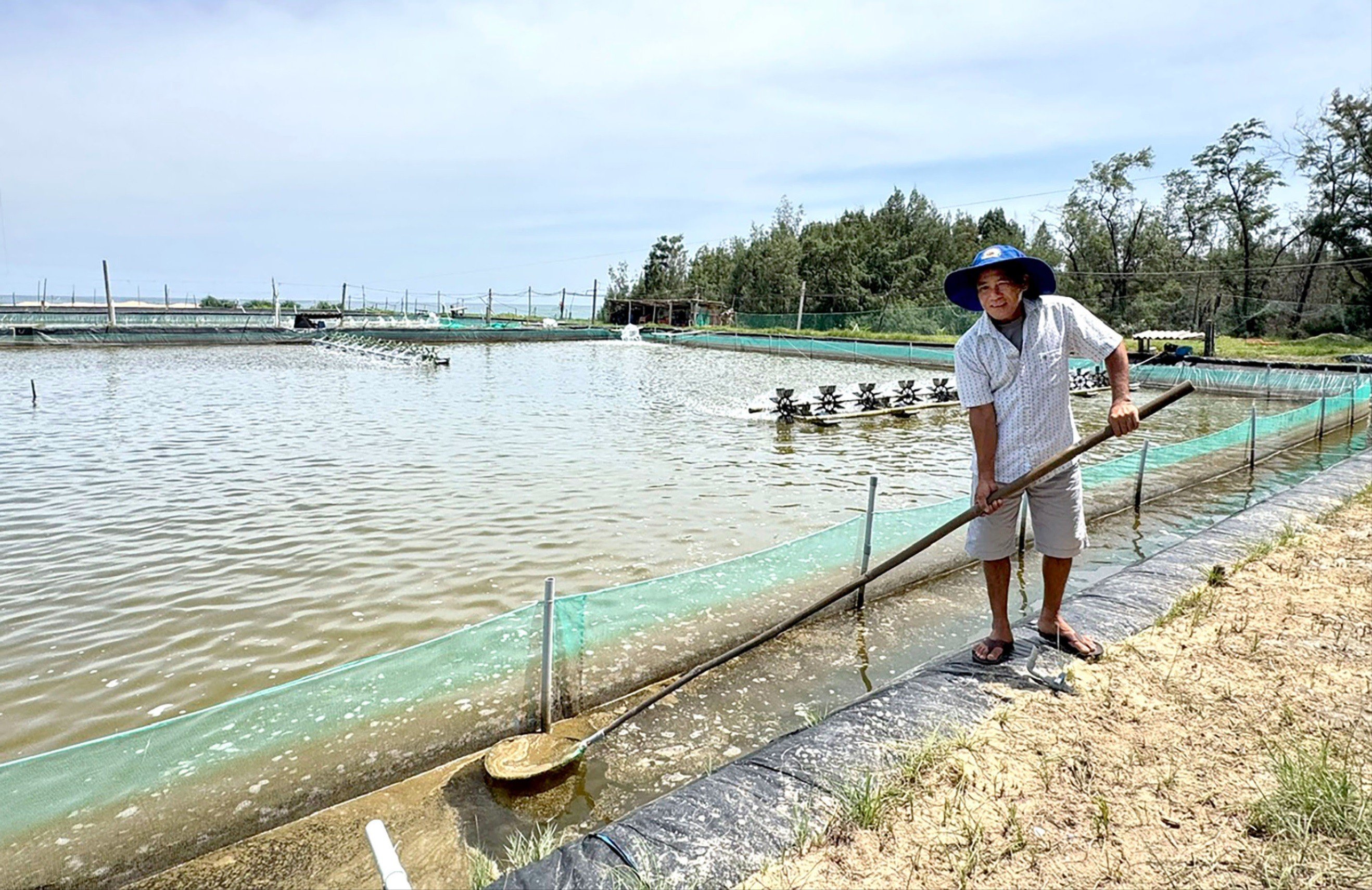 |
| Mr. Le Van Lieu (Tra Cau ward, Quang Ngai province) quit his job at sea and switched to raising snails and shrimp. (Photo: Quang Ngai Newspaper) |
Also in Tra Cau, Mr. Huynh Sam (42 years old) used to work as a trawler for more than 15 years. In 2016, he decided to stop going to sea and switch to selling groceries and providing fishing gear for fishing boats. His shop is located opposite My A fishing port, welcoming a lot of customers. "At first, I was sad to stop going to sea, but then I thought, changing jobs is to adapt. Now I am still attached to fishermen, just in a different way," Mr. Sam said.
Cases like Mr. Lieu and Mr. Sam are becoming more and more common along the coastal villages of the Central region. Many families do not let their children follow their father’s profession, but instead aim for stable jobs on shore. This trend, although causing the fleet to decrease, opens up a new direction of development: a multi-sector, environmentally friendly marine economy .
Cooperative and co-management models come into play
In Vinh Long, Rang Dong Aquatic Cooperative is a typical example of successful career transition. From living off natural exploitation, fishermen here have switched to marine aquaculture combined with ecotourism . The cooperative currently manages more than 1,500 hectares of water surface, creating stable income for 3,000 households, both protecting the ecological environment and exploiting the potential of the sea reasonably.
In Cu Lao Cham (Da Nang), many fishermen have also left fishing to switch to transporting tourists, opening homestays and catering services. This helps them have higher and more stable incomes, while significantly reducing exploitation pressure in the marine reserve.
In Hue, the co-management of aquatic resources was implemented early. Immediately after the 2017 Fisheries Law took effect, the locality established 22 aquatic conservation areas with a total area of over 11,600 hectares, including 614 hectares of strictly protected core areas. These areas were assigned to the grassroots Fisheries Association for management - an innovative approach that helps reduce fishing ground conflicts, protect resources and restore the ecology of the Tam Giang - Cau Hai lagoon.
Grassroots efforts go hand in hand with the State's major orientation. According to Decision No. 3389/2024/QD-TTg of the Prime Minister on the Planning for the Protection and Exploitation of Aquatic Resources for the 2021-2030 period, with a vision to 2050, Vietnam aims to reduce the number of fishing vessels by at least 12% compared to 2020.
Experts say that fisheries resources have decreased by about 20% compared to 20 years ago due to over-exploitation, small and outdated fishing fleets, combined with the impact of climate change and environmental pollution. Therefore, career change, sustainable livelihood development and responsible management are the directions that cannot be delayed.
Mr. Tran Minh Hai, Vice Principal of the School of Public Policy and Rural Development, said that in order to protect and sustainably exploit aquatic resources, localities need to build fisheries cooperatives associated with a co-management model. Cooperatives not only organize production but also develop services, trade and tourism, creating a closed value chain for fishermen.
Changing careers is not just about changing jobs, but about changing the way people approach the sea - from exploitation to conservation, from dependence to initiative. When fishermen have stable livelihoods and resources are restored, the sea will once again become a sustainable source of life for the future.
Source: https://thoidai.com.vn/huong-di-moi-cho-sinh-ke-ngu-dan-viet-nam-217387.html



![[Photo] Ca Mau "struggling" to cope with the highest tide of the year, forecast to exceed alert level 3](https://vphoto.vietnam.vn/thumb/1200x675/vietnam/resource/IMAGE/2025/11/04/1762235371445_ndo_br_trieu-cuong-2-6486-jpg.webp)
![[Photo] The road connecting Dong Nai with Ho Chi Minh City is still unfinished after 5 years of construction.](https://vphoto.vietnam.vn/thumb/1200x675/vietnam/resource/IMAGE/2025/11/04/1762241675985_ndo_br_dji-20251104104418-0635-d-resize-1295-jpg.webp)
![[Photo] Ho Chi Minh City Youth Take Action for a Cleaner Environment](https://vphoto.vietnam.vn/thumb/1200x675/vietnam/resource/IMAGE/2025/11/04/1762233574890_550816358-1108586934787014-6430522970717297480-n-1-jpg.webp)

![[Photo] Panorama of the Patriotic Emulation Congress of Nhan Dan Newspaper for the period 2025-2030](https://vphoto.vietnam.vn/thumb/1200x675/vietnam/resource/IMAGE/2025/11/04/1762252775462_ndo_br_dhthiduayeuncbaond-6125-jpg.webp)
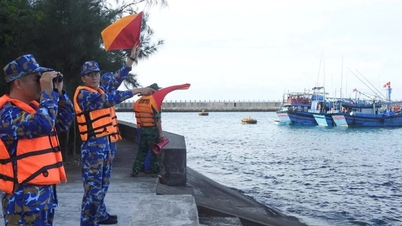



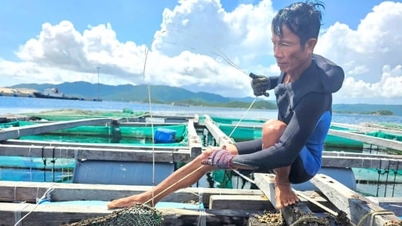

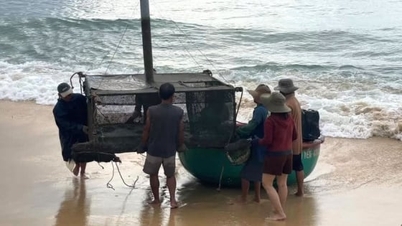
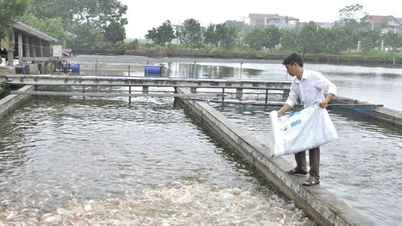

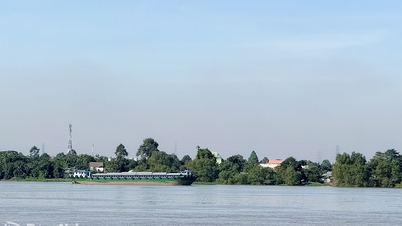

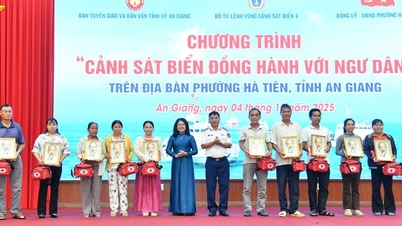
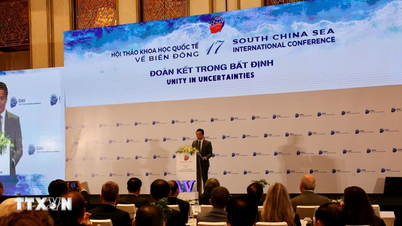

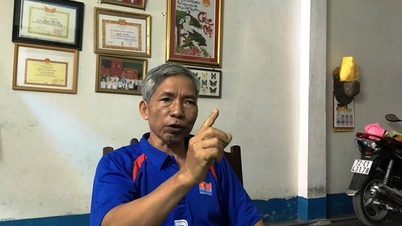



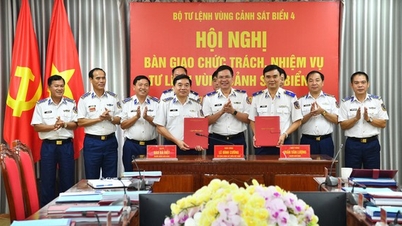
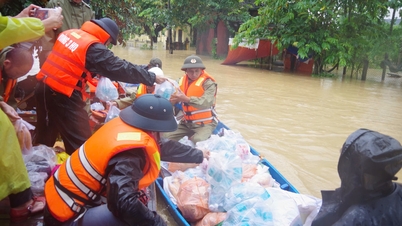




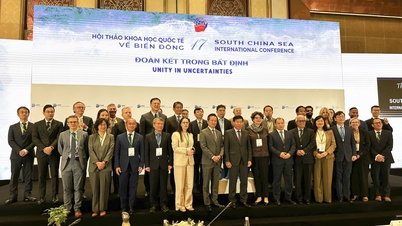
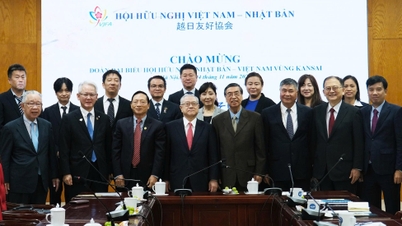
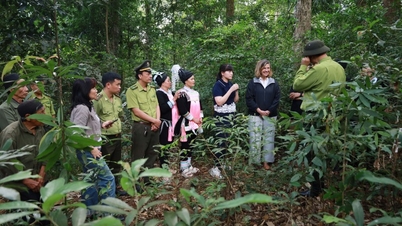

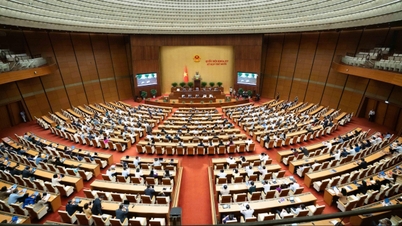
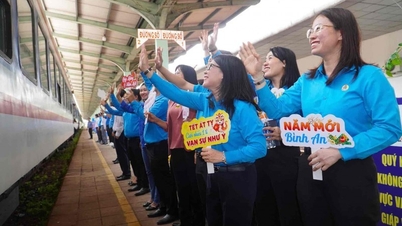














































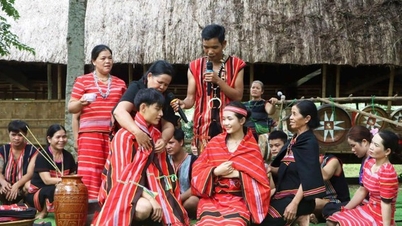









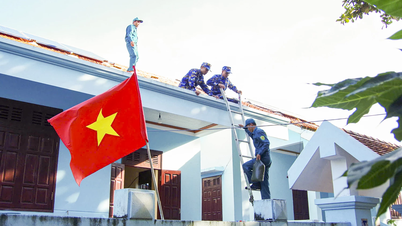











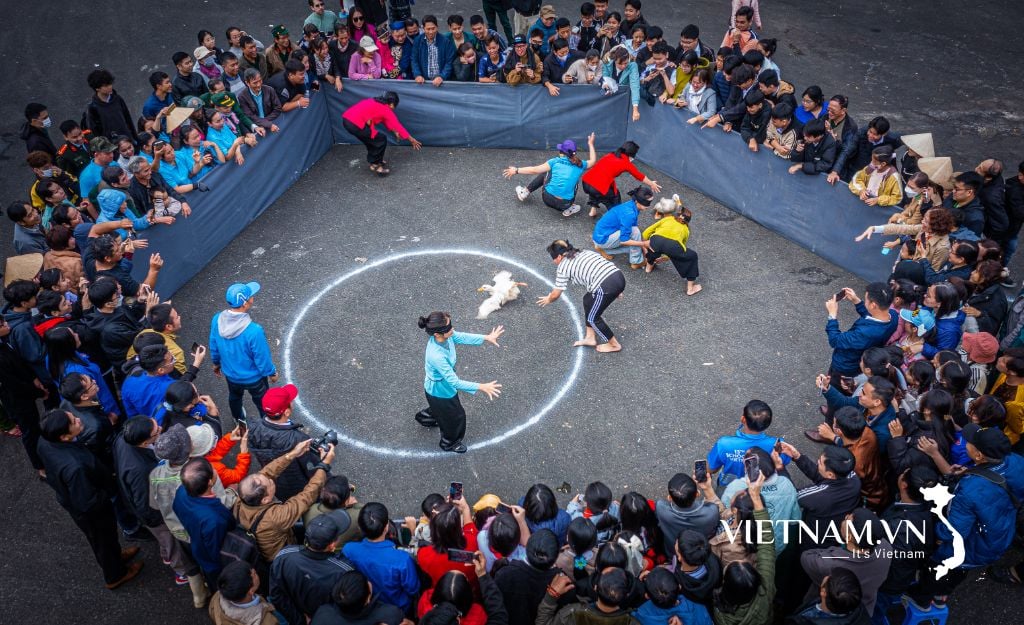
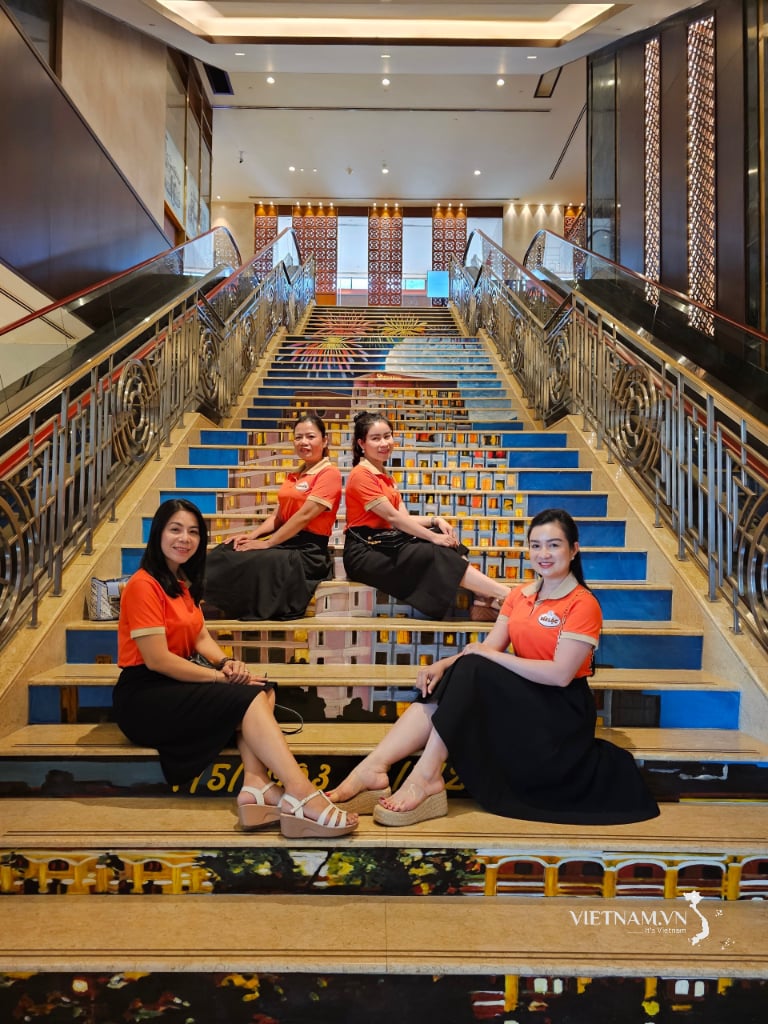
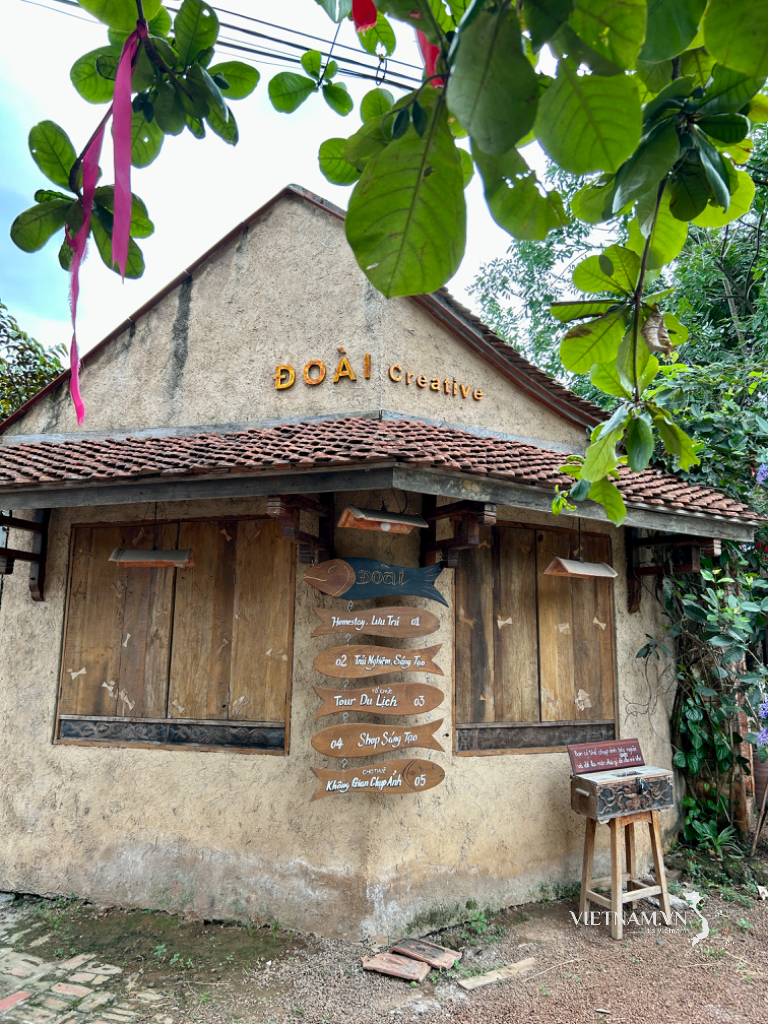

Comment (0)